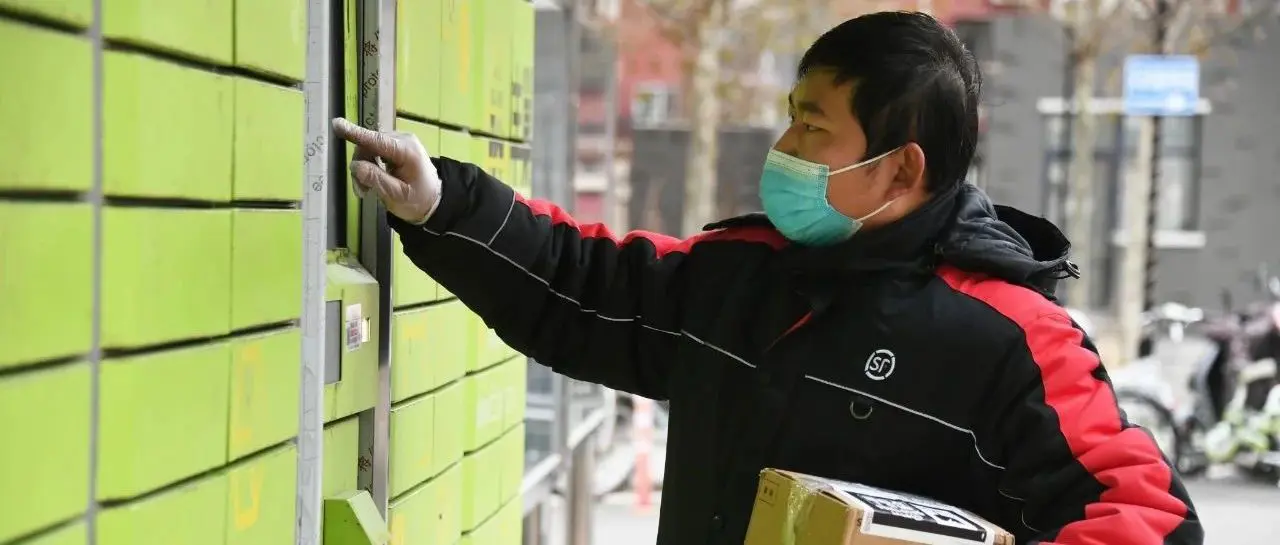Express delivery volume surges, are smart parcel lockers losing favor?

"Double" is about to kick off, and express delivery volume is experiencing a surge. The "massive" number of packages also brings pressure to the delivery efforts of express delivery workers. Starting from a certain date this year, the newly implemented "Express Market Management Measures" require express delivery companies to obtain user consent before confirming receipt of a package and to refrain from delivering packages to smart parcel lockers, express service stations, or other last-mile delivery facilities without authorization.
With the implementation of new regulations, the rate of delivery personnel visiting homes has increased. Are smart parcel lockers, which once dominated city streets, gradually losing their popularity? Smart parcel lockers were introduced to address the issue of last-mile delivery. In , China Post installed the first parcel locker in the country. The number of smart parcel lockers nationwide was . million units in , grew to million units in , and reached over million units in , with an average compound annual growth rate of %.
After more than a decade of development, the smart parcel locker industry has now formed a tripartite structure dominated by e-commerce platforms, courier companies, and third-party operators. Several smart parcel locker operators have stated that in recent years, the phenomenon of locker removal has been increasing, and the impact of new courier regulations is secondary. There are three main reasons:
——In the past few years, the scale of deployment surged, but the rate of use declined, and the frequency of use decreased. At the enterprise level, although the scale expanded, profits declined, and many enterprises incurred losses. If they are to "survive," it is inevitable that express cabinets will need to be appropriately removed or consolidated.
Express delivery cabinets entering residential communities, office buildings, and other locations need to pay for water, electricity, and site fees to the property management, and maintenance and upgrades are required after the cabinets age or break down, leading to rising operational costs.
The willingness of delivery personnel and recipients to use smart parcel lockers is declining. The operators of these lockers are charging delivery personnel between . and . yuan per parcel, squeezing their income, while also charging recipients for overtime storage fees. Multiple delivery workers have stated that the delivery fee per parcel is approximately yuan. After the new regulations were implemented, they are more inclined to opt for door-to-door delivery or drop-off at parcel stations.
Since the end of the month, some e-commerce platforms have started shopping festivals, leading to an earlier arrival of the express delivery peak. The State Post Bureau predicts that this express delivery peak season will begin at the end of this month and is expected to last until the Spring Festival next year. Compared to smart express cabinets, express delivery stations, which have emerged in recent years, are more "popular" among the public in addressing the issue of last-mile delivery.
Taking Cainiao驿站 as an example, it currently handles over millions of parcels daily and has more than 100,000 sites. Many delivery men reveal that the fees for couriers at the驿站 are low, and the process of collecting parcels is very simple. Couriers can gather parcels from the same area in advance and directly deliver them to the驿站 in that area. Compared to smart parcel lockers,驿站 does not require couriers to scan each parcel individually or wait in line, allowing for short-term, large-scale deliveries.
More importantly, the post station does not charge recipients for overdue storage fees, which is more popular among the public. Xu Junjun, Deputy Director of the Development Research Center of YTO Express, said that the elderly who are not adept at operating smart express cabinets prefer the post station. Moreover, by collecting and delivering parcels in a centralized manner, consumers do not need to fill in detailed home addresses during online shopping; they only need to choose the nearest post station as the delivery address. This reduces the risk of consumer personal information leakage.
Fengchao, a leading company in the express cabinet market share ranking, stated that as of the date, the number of Fengchao cabinets reached 400,000 units, an increase of 170,000 units compared to the previous year, and continued to grow after the implementation of the new express regulations. Xu Hang, Senior Manager of the Market Operations Department at Fengchao, said that some cabinet removals are based on big data system analysis, aiming to optimize the layout of the cabinets and improve utilization rates.
As of the specified date, the number of parcels delivered through Fengchao's last-mile delivery this year has reached 1.2 billion, covering approximately 300,000 communities across 31 provinces nationwide. Xu Hang believes that due to the diverse needs of users, both express cabinets and post stations, as two models for solving last-mile delivery issues, have their own strengths and weaknesses, making it difficult to simply judge their merits.
The monitoring data from the State Post Bureau shows that the new express delivery regulations came into effect on a certain date this year. Compared to the previous months, there has been no significant fluctuation in the data for the January to May period in terms of the box delivery rate (the proportion of express items delivered using smart parcel lockers to the total number of express items delivered across the industry), with overall performance remaining stable.

